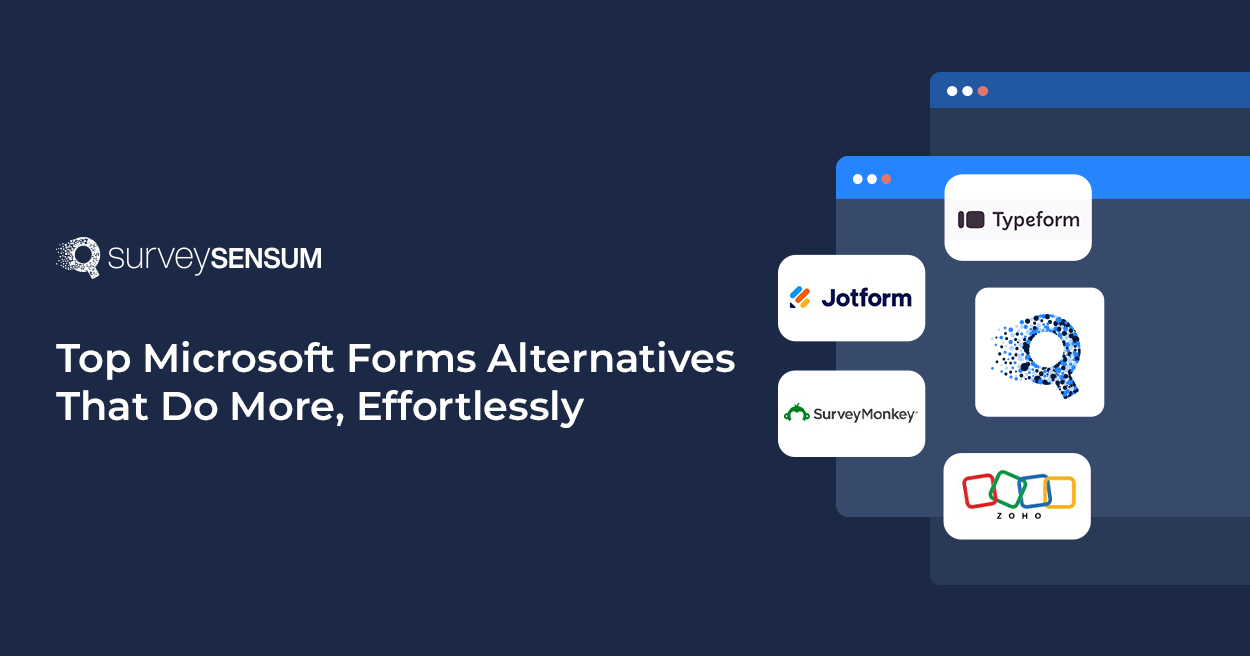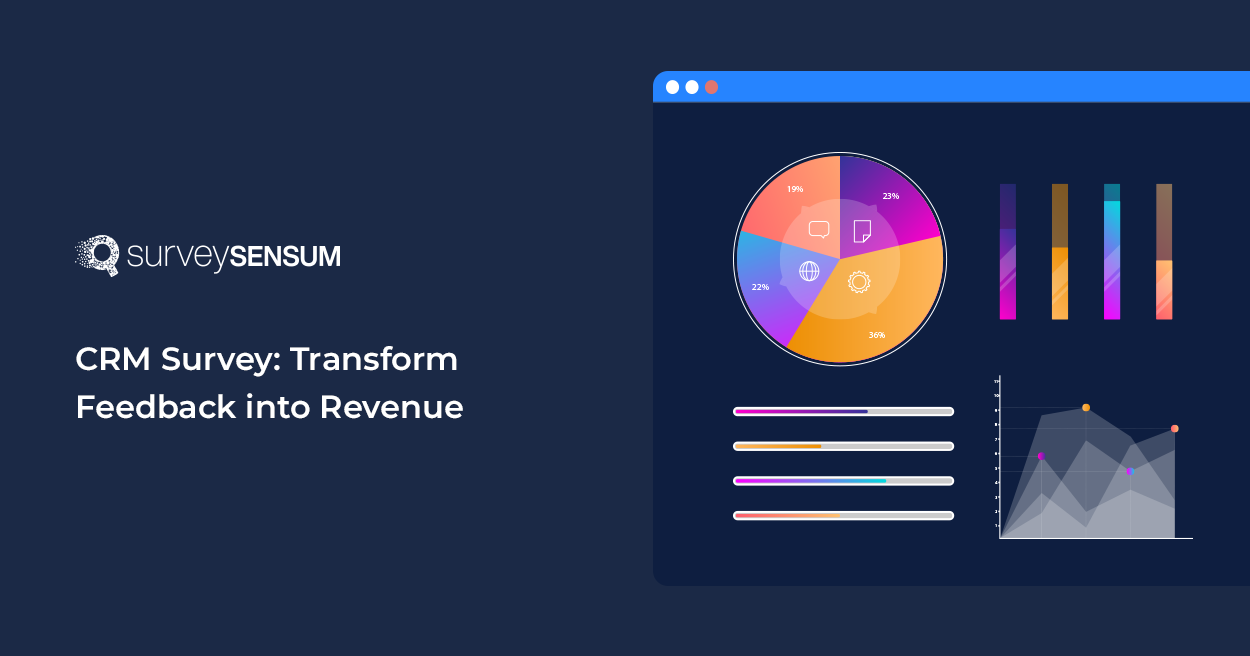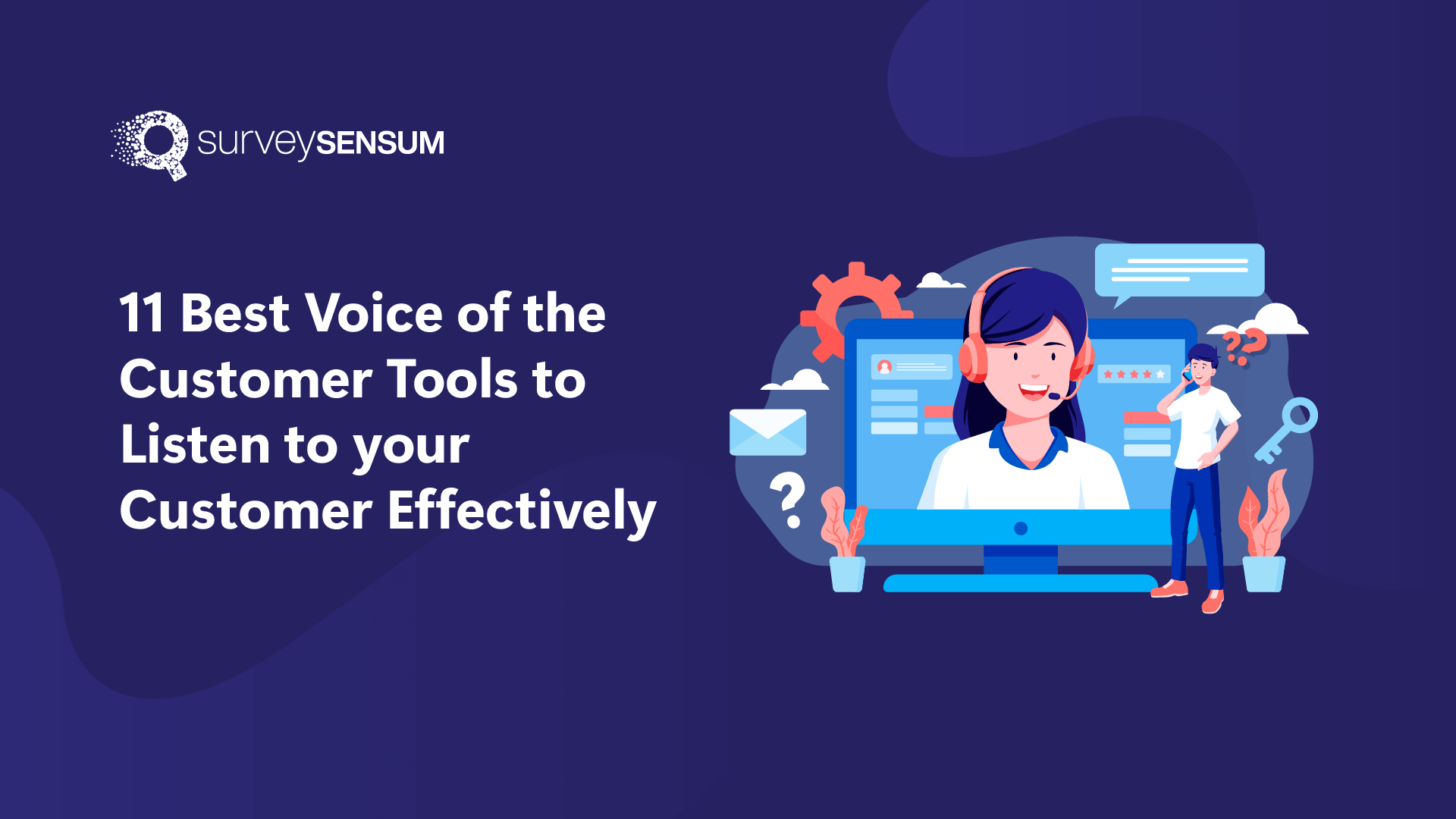
Conducting market research is crucial for understanding customer needs, analyzing competitors, and making informed decisions.
But for small businesses, this journey is not that easy.
The key challenge is finding market research tools that are both effective and within budget. Popular tools like Qualtrics, Medallia, etc are not suitable for the needs of small businesses as they are expensive, and have way too advanced features with extra price and also without any implementation support or CX consultation.
So, are there not any market research tools to match the needs of a small business?
Yes, many popular market research tools are cost-effective and don’t compromise on quality. So, let’s explore some of the best market research tools for small businesses that can help you gain the insights needed to make informed decisions and create professional documents with an invoice receipt maker.
What is a Market Research Tool?
A market research tool is a platform that helps businesses and researchers collect, analyze, and interpret data about markets, consumers, competitors, and industry trends. These tools are essential for making informed business decisions, understanding customer needs, and developing effective marketing strategies. They can range from simple survey tools to complex data analytics platforms.
Let’s now discover the top 7 small business market research tools.
Top 7 Small Business Market Research Tools
1. SurveySensum

If you’re running a small business and tired of juggling multiple tools for surveys and market research, let me introduce you to SurveySensum.
This is where SurveySensum comes in.
SurveySensum is one of the most cost-effective small business market research tools available. This handy platform does it all—from testing your concepts, pricing, and packaging to understanding customer behaviors and conducting custom studies.
Need to figure out why customers are dropping off or want to do some profiling? SurveySensum has got you covered. Unlike other research tools, SurveySensum gives you quick results, often in just 5 days, not weeks. Plus, it combines customer feedback and ad hoc research in one place, so you don’t have to waste time hopping between different services.

*Source: G2, Aug 31, 2021
SurveySensum Key Features
- Ad hoc research in the same feedback platform
- Text analytics software
- Transparent and affordable pricing
- Integrations (along with data import)
- Close the feedback loop with a real-time ticketing system
- WhatsApp survey
- Customizable and multilingual surveys
Pros
- DIY Platform
- Unique links (to be pushed on the client’s dashboard)
- Automated Reminders
- Faster Insights
- Automated Dashboard (with consultation)
- Priority & Technical Support (2-hour SLA)
- Guidance and Consultation on Questionnaire
- Cross Tabulation analysis
Cons
- Some app integrations are missing but their swift support team is ready to integrate on your request.
Pricing
In the free plan, you get 25 survey responses. Along with that, you also receive website integrations, unlimited surveys, unlimited users, and unlimited questions. The paid plan starts from $99/month and goes higher with survey responses.
G2 Review: 4.4/5
Looking for a customer feedback tool that also allows you to do Ad-Hoc research but within budget? Well, look no further! Sign up today to SurveySensum and launch CX surveys as well as do market research all in the same platform and at a cost-effective price.
2. Statista

Statista is a leading online statistics, market research, and business intelligence portal that provides access to data from over 22,500 sources. Founded in 2007 by Friedrich Schwandt, Statista offers comprehensive statistics and studies on over 80,000 topics across a wide range of industries and markets.
Our View: If you want data then this is the right platform for you to get it, but if you want relevant links to the data or correct studies, then this platform might not be right for you as they don’t provide relevant links to industry-level reports.

*Source: G2, Jun 03, 2023
Best Features
- The platform provides in-depth industry reports, market studies, and company profiles.
- It provides ready-made dossiers and visually engaging infographics that summarize key data points and trends.
- They provide tailored market research services, including data analysis, report writing, and consulting.
Pros
- Provides data, graphs, and relevant information
- Best for business and academic research
- Perfect for analyzing heavy chunks of data
Cons
- Most data is hidden in very expensive reports
- UI needs improvement
Pricing
For pricing details, contact the Statistia team.
G2 Review: 4.2/5
3. SurveyMonkey

SurveyMonkey is widely used by businesses, educational institutions, non-profits, and researchers for various purposes including market research, customer feedback, employee engagement, and academic research. Its ease of use, comprehensive feature set, and scalability make it a versatile tool for collecting and analyzing survey data. Whether you’re conducting a study to determine purchase decisions among consumers or gathering the latest video marketing trends, SurveyMonkey is a reliable tool that gets the job done.
Our View: This is an ideal market research tool for basic capabilities. But it doesn’t offer any dashboards and users have to do the analysis manually.
Best Features
- It provides provides robust data analysis tools, including customizable reports, data visualizations, and export options.
- Used for collecting testimonials, and ratings to understand what type of content your clients want to see.
- It seamlessly integrates with third-party tools such as CRM, marketing automation, collaboration, and analytics.
Pros
- Survey builder and distribution
- Has accurate context derived from the most recent benchmark data
- Creates recurrent surveys with ease to monitor sentiment over time
Cons
- Can be expensive with addons
- No dashboard is available and users have to do the analysis manually
Pricing
SurveyMonkey pricing starts at $31/month
G2 Review: 4.4/5
4. Typeform

Typeform is an online platform that allows users to create interactive, engaging forms, surveys, quizzes, and more. It is designed to enhance user experience with visually appealing and conversational interfaces, making the process of collecting information more engaging for respondents.
Our View: This is a beginner-friendly tool that can help you launch simple surveys. But it lacks advanced customization options.

*Source: G2, Dec 19, 2023
Best Features
- Typeform allows for the fast creation of simple surveys with branching logic.
- The connection with Google Sheets and Zapier works seamlessly.
- Typeform offers us unparalleled design and branding functionality.
Pros
- Excellent no-code CX solution
- Unlimited questions
- Great template designs and options
Cons
- Limited responses in the free plan
- Pricey upgrade for small enterprises
Pricing
The basic plan starts at $29/month.
G2 Review: 4.5/5
Need to figure out why customers are dropping off or want to do some profiling? Sign up today to SurveySensum and get detailed insight into its customer churn-off and design strategies to combat it.
5. Paperform

Paperform is an online form builder and survey tool that allows users to create custom forms, landing pages, and surveys with ease to facilitate market research for small businesses. Its combination of ease of use, customization options, and powerful features make it a valuable market research tool for anyone looking to streamline data collection and process automation.
Our View: If you are looking for a simple survey builder tool to facilitate your market research then this tool might be an ideal choice for you. But if you are looking for a more intuitive tool with better customization capabilities, then this tool might not be ideal for you.

*Source: G2, Nov 08, 2022
Best Features
- The platform offers a wide range of templates for different use cases, including contact forms, event registrations, feedback surveys, and product orders.
- Paperform integrates with popular payment gateways like Stripe, PayPal, and Square.
- It integrates with numerous third-party applications, including Google Sheets, Mailchimp, Zapier, and Slack.
Pros
- In-built survey templates
- Responsive customer service
- Google Sheets and Activecampaign integrations automate a number of tasks.
Cons
- Lack of direct integration with e-commerce ESP and e-commerce Helpdesks
- Lack of integration with KLAVIYO despite the increase in pricing
Pricing
The basic plan starts at $20/month.
G2 Review: 4.5/5
6. GWI

GWI, formerly known as GlobalWebIndex, is a market research and audience insights company that provides data on consumer behavior, attitudes, and demographics. It offers a comprehensive understanding of how people use the internet and interact with digital platforms, products, and services. GWI’s data and insights are widely used by marketers, researchers, and businesses to inform their strategies and make data-driven decisions.
Our View: It is a simple market research tool where you can gather data and study the market. However, the tool lacks robust filtering options.

*Source: G2, Feb 12, 2024
Best Features
- GWI conducts large-scale surveys across various regions and demographics, covering over 40 countries.
- Users can create detailed profiles of their target audiences based on a wide range of variables, including demographics, psychographics, behaviors, and interests.
- GWI regularly publishes reports and insights on key market trends, industry developments, and emerging consumer behaviors.
Pros
- Seamlessly integrates with other data and marketing tools
- Can obtain granular data points with ease
- User-friendly, reliable, and flexible platform
Cons
- Lack of EMEA coverage for the gaming dataset
- Dashboards aren’t available for all data sources
Pricing
You have to contact the GWI team for pricing details.
G2 Review: 4.4/5
7. Google Trends

Google Trends is a free online tool provided by Google that allows users to explore the popularity of search queries over time and facilitates market research. It provides insights into what people are searching for on the internet and how their interest in those topics changes over time. Launched in 2006, Google Trends is widely used for market research, SEO strategy, content planning, and trend analysis.
Our View: Google Trends is a useful tool for monitoring how your users worldwide are changing in terms of their interests and preferences. You can do trend analysis over time and market research with this tool. But if you need a tool that can tell you why the trend is changing and want a detailed analysis of that trend, then this tool might not be ideal for you as it doesn’t tell you the “why” behind the trend.

*Source: G2, Jan 07, 2024
Best Features
- The tool is free so it is an ideal market research tool for small businesses.
- It gives a graphical representation for easy analysis.
- It allows comparisons between search terms and a granular view of geographic trends.
Pros
- Easy-to-use intuitive user interface
- Free tool
- Specific search filters – country, timeline, categories, and search type.
Cons
- Doesn’t provide the “why” behind trends
- Doesn’t provide overall search volume estimates
Pricing
The tool is free which makes it a great tool for market research tool for small businesses.
G2 Review: 4.6/5
Conclusion
By using the above-mentioned cost-effective and powerful market research tools, small businesses like, you can stay ahead of the game, tailor your offerings to what customers really want, and drive your business forward. Investing in market research tools is a smart move that can help your small business thrive in today’s market.
But choosing the right tool makes all the difference. If your tool isn’t right it won’t drive the desired result and might also cost you more than expected. So, choose a powerful and cost-effective feedback tool like SurveySensum.
SurveySensum is your one-stop shop for getting the customer insights you need, fast. Forget juggling multiple tools and waiting weeks for results. This user-friendly platform lets you:
- Test anything: From concepts and pricing to packaging and messaging, validate your ideas before you invest.
- Understand your customers: Uncover buying behaviors, identify pain points, and create targeted customer profiles.
- Reduce churn: Pinpoint why customers are leaving and take action to keep them happy.
- Get answers quickly: Unlike competitors, SurveySensum delivers results in just 2-3 days, not weeks.
Frequently Asked Questions
Market research tools are platforms or software that help businesses gather, analyze, and interpret data about their target audience, competitors, or industry trends. These tools make it easier to make informed business decisions.
For small businesses, the best market research methods are:
- Online Surveys: Use tools like SurveySensum or Google Forms to gather customer feedback quickly.
- Social Listening: Monitor platforms like X (Twitter), Instagram, or Reddit to see what people say about your niche or brand.
- Competitor Analysis: Use free tools like Ubersuggest or paid ones like SEMrush to analyze competitors’ online strategies.
- Customer Interviews: Simple yet powerful for in-depth insights.
The four main methods of market research are:
- Surveys/Questionnaires: Ideal for gathering large-scale opinions.
- Interviews: One-on-one conversations for deep insights.
- Focus Groups: Small group discussions for testing ideas and perceptions.
- Observation: Watching customer behavior in natural or digital environments.
The 7 fundamental questions every market research study should answer are:
- Who is your target audience?What do they want or need?
- When do they buy or engage with your product?
- Where do they make their purchase decisions?
- Why do they choose you (or your competitors)?
- How do they use your product/service?
- How much are they willing to pay?















